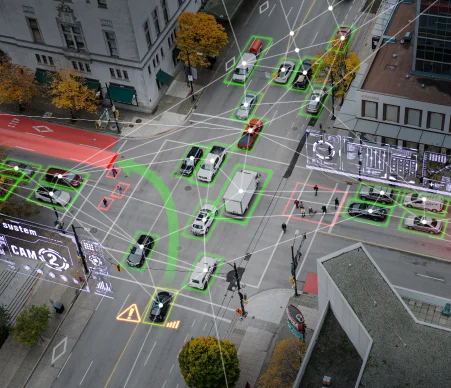A
- Access Control
- Agile Development
- AI Analytics
- AI Marketing
- Anomaly Detection
- App Code Obfuscation
- App Security
- Application Development
- Application Hardening
- Application Infrastructure
- Application Management
- Application Modernization
- Application Programming Interface (API)
- Application Security Testing (AST)
- Application Transformation
- Applied Artificial Intelligence
- Artificial Intelligence
- Asset Management
- Authentication
- Authorization
- Automated Machine Learning
- Automation Solutions
B
- Behavior-Driven Development (BDD)
- Behavioral Analysis
- Big Data
- Big Data Analytics
- Big Data Visualization
- Binary Analysis
- BlueOps Vulnerabilities
- Bug Bounty Programs
- Build Automation
- Building Analytics
- Building Management System
- Building Technologies
- Business Analytics
- Business Continuity Planning
C
- Chatbots
- CI/CD Tools
- Cloud Configuration
- Cloud Consulting
- Cloud Infrastructure
- Cloud Managed Services
- Cloud Management
- Cloud Migration Solutions
- Cloud Security
- Cloud Workspace
- Code Analysis Tools
- Compliance
- Configuration Management
- Container Security
- Continuous Delivery (CD)
- Continuous Deployment
- Continuous Integration (CI)
- Continuous Monitoring
- Conversational AI
- Credential Management
- Cross-Site Scripting (XSS)
- Cryptography Compliance Audits
- Customer Experience Strategy
- Customer Intelligence
- Cyber Security
D
- Data Analytics
- Data Loss Prevention
- Data Migration
- Data Platform
- Data Privacy
- Data Science
- Data Transformation
- Deep Learning
- Denial of Service (DoS)
- Dependency Scanning
- DevOps
- DevSecOps Pipeline
- Digital Engineering
- Digital Forensics
- Digital Transformation
- Disaster Recovery
- Distributed Version Control System (DVCS)
- Dynamic Application Security Testing (DAST)
E
- Embedded Engineering
- Encryption Key Management
- Endpoint Security
- Energy data analytics
- Energy Management
- Enterprise Application Services
- Enterprise Resource Planning (ERP)
- Enterprise Service Management (ESM)
- Ethical Hacking
- Event Logging
- Exploit Development
F
- False Positive
- File Integrity Monitoring
- Fileless Malware
- Firewall Configuration
- Forward Chaining Rules
- Fraud Detection
- Fraud Intelligence
- Fuzz Testing
- Fuzzy Logic
G
H
I
- Identity and Access Management (IAM)
- Incident Response
- Industrial IoT (IIoT)
- Industry 4.0
- Infrastructure as Code (IaC)
- Infrastructure Security
- Innovation Product Design
- Innovation Product Development
- Integration Testing
- Intelligent Automation
- Intelligent Process Automation
- Interactive Application Security Testing (IAST)
- Internet of Things (IoT)
- Internet of Things Platform
- Internet of Things Strategy
- Intrusion Detection System (IDS)
- IT/OT Convergence
J
- Jailbreaking
- Jamming Attacks
- Java Security
- JSON Web Tokens (JWT)
- Julia Programming Language
- Just-In-Time (JIT) Compilation
K
- Kernel Security
- Key Management Service (KMS)
- Knowledge-Based Authentication (KBA)
- Kubernetes Security
L
M
- Machine Learning (ML)
- Malware Analysis
- Man-in-the-Middle (MitM) Attacks
- Marketing Analytics
- Marketing Automation
- Marketing Technology
- Memory Protection
- Microservices
- Mobile Applications Security Testing (MAST)
- Mobile Device Management (MDM)
- Multi-Factor Authentication (MFA)
N
- Natural Language Processing (NLP)
- Network Intrusion Detection
- Network Segmentation
- Neural Network
- Next-Generation Firewalls (NGFW)
- NIST Compliance
- Non-Repudiation
O
- OAuth Protocol
- Obfuscation Techniques
- Offline Authentication
- Omnichannel Commerce
- Omnichannel Customer Experience (CX)
- Omnichannel Marketing
- Open API
- Open Web Application Security Project (OWASP)
- Open-Source Security
- Operational Efficiency
- Operations Intelligence
- Operations Strategy
- Orchestration Tools
- Out-of-Band (OOB) Authentication
P
- Patch Management
- Penetration Testing (Pen Testing)
- Phishing Detection
- Pipeline as Code
- Port Scanning
- Privileged Access Management (PAM)
- Process Analysis
- Process Automation
- Process Innovation
- Process Mapping
- Process Technology
- Protocol Analysis
Q
- Quality Assurance (QA)
- Quality Engineering and Assurance
- Quality Management Services
- Quantum Cryptography
- Quarantine Procedures
- Query Injection
R
- R Language
- Ransomware Protection
- Red Team Assessments
- Remediation
- Remote Collaboration
- Risk Assessment
- Risk Assessment Automation
- Robotic Process Automation (RPA)
- Rootkit Detection
- Runtime Application Self-Protection (RASP)
S
- Sandbox Environments
- Secure Coding Practices
- Security Automation
- Security Awareness Training
- Security Champions
- Security Information and Event Management (SIEM)
- Security Orchestration
- Security Posture
- Shift-Left Security
- Smart City
- Smart Home
- Smart Manufacturing
- Smart Meters
- Smart Products
- Smart Spaces
- Software as a Service (SaaS)
- Software Composition Analysis (SCA)
- Software Defined Networking (SDN)
- Software Development Life Cycle (SDLC)
- Static Application Security Testing (SAST)
- Structured Data
T
- Telehealth
- Telemedicine
- Test Automation
- Test-Driven Development (TDD)
- Thick Data
- Threat Hunting
- Threat Intelligence
- Threat Modeling
- Tokenization
- Trade Finance Process Automation
- Trojan Detection
- Two-Factor Authentication (2FA)
U
- UEFI Secure Boot
- Unified Device Management
- Unified Threat Management (UTM)
- Unstructured Data
- URL Filtering
- User Behavior Analytics (UBA)
- User Experience Design
- User Provisioning
V
- Vendor Risk Management
- Version Control Systems
- Virtual Reality (VR)
- Virus Scanning
- Voice Biometrics
- VPN Configuration
- Vulnerability Assessments (VA)
- Vulnerability Management
- Vulnerability Remediation
W
- Web Application Firewall (WAF)
- Web Security Standards
- White Box Testing
- Wi-Fi Protected Access (WPA)
- Wireless Security
X
Y
Z
Energy Management
Simple Definition for Beginners:
Energy management is the process of monitoring, controlling, and conserving energy in a building or organization to save costs and reduce environmental impact.
Common Use Example:
An office building can implement energy management by installing smart thermostats and LED lighting, scheduling heating and cooling based on occupancy, and regularly maintaining equipment to ensure efficient energy use. This helps lower utility bills and reduces the building’s carbon footprint.
Technical Definition for Professionals:
Energy management involves a systematic approach to optimizing energy consumption in facilities and organizations. It encompasses the monitoring, controlling, and conserving of energy usage through various strategies and technologies. Key components include energy audits, real-time monitoring, energy-efficient technologies, and behavioral changes. Energy management systems (EMS) integrate data from sensors and meters to provide real-time insights and enable automated control of energy-consuming devices. The goals are to enhance operational efficiency, reduce energy costs, and minimize environmental impact.
Energy Management

